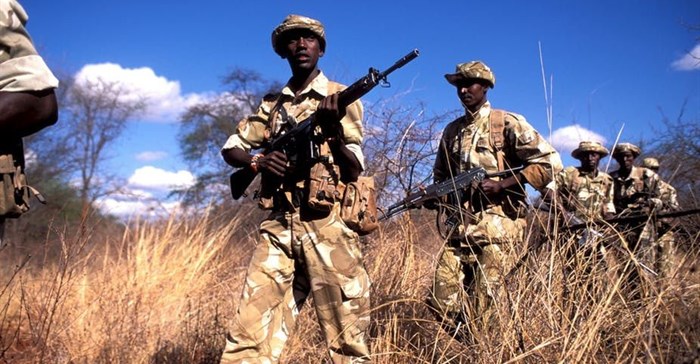Why Kenya's proposal to execute convicted poachers is a bad idea

Poaching threatens wildlife populations – most worryingly elephants and rhinos. The loss of wildlife threatens one of the pillars of Kenya’s tourism industry, and therefore its economy, as well as the survival of some species.
Poaching is also a security risk as it presents challenges to the military and police, which can be outgunned by poachers and their criminal allies.
Currently, a conviction of wildlife crime in Kenya, involving endangered and threatened species, attracts the country’s severest punishment: a life sentence or fine of not less than 20 million shillings, about $200,000.
But the death penalty proposal is informed by a quick fix mentality that’s not equipped to solve the complex problem of wildlife poaching. It’s ill-advised for at least three reasons. First, it goes against the global trend away from using the death penalty. Second, poachers are already willing to risk their lives, so it won’t work as a deterrent. And finally, rather than putting in new laws, the government should address what’s wrong with the current laws which offer sufficient penalties.
A bad idea
The reliance on the death penalty is declining both globally and locally. It’s seen as undermining human dignity and is an obstacle to protecting human rights.
There’s also been a shift in thinking in Kenya. While the death penalty is still on the books, there hasn’t been an execution in nearly 30 years. There have also been cases where Kenya’s court of appeal has ruled that mandatory death sentences are unconstitutional and presidents have commuted death sentences to life imprisonment.
Secondly, Kenya has a shoot to kill policy for tackling poaching which dates back to 1989. This has been largely ineffective. If poachers are already willing to take risks, then the death penalty won’t deter them.
Finally, the 2013 Wildlife Conservation and Management Act, which increased penalties for wildlife crime, has only been in force for about five years. This isn’t enough time to gauge its effectiveness.
The real focus should be on existing laws. Rather than putting in new laws, the government should address what may be wrong with them, including the penalties they carry.
Several factors could explain why they may not be successful. These include: lax enforcement, under-resourced government agencies such as the Kenya Wildlife Service, corruption and prolonged election periods which used wildlife rangers for security in parts of the country.
Way forward
It is only prudent that the Kenyan government reconsider the death penalty proposal. In seeking a solution it should consider the following suggestions.
Firstly, the economic empowerment of conservation area communities by ensuring that wildlife conservation works for them. While tourism contributes significantly to the country’s economy, communities who share their lands with wildlife often continue to live in poverty. They also bear the brunt of human-wildlife conflict including the loss of life, injuries from attacks and loss of property. Poaching will become undesirable if tourism delivers benefits.
Secondly, ensure that relevant government agencies, such as the Kenya Wildlife Services and Kenya Police, are well resourced and accountable. With a financially struggling Wildlife Service and corrupt police service, it is foolhardy to expect that the country’s wildlife laws will be enforced properly.
Thirdly, new national institutions, like the Kenya Wildlife Conservancies Association, should be given more decision-making authority to ensure community voices aren’t silenced. Their effective involvement would mean real empowerment for communities and would ensure community buy-in on policies. This is an integral step in ensuring wildlife security.
Lastly, relevant government agencies should also try and collaborate with global actors in building a wildlife crime busting network. Past experience shows this is an effective strategy in addressing poaching. For example, the collaboration between the Kenya Wildlife Service and the International Criminal Police Organisation (INTERPOL) led to the arrest of a suspected poaching boss, Feizal Ali Mohammed, accused of trafficking large quantities of ivory.
![]() Ultimately, tackling Kenya’s poaching problem requires a multi-layered, comprehensive approach which involves all stakeholders including government, non-governmental organisations, local and global communities and ensures the protection of human rights and dignity. An approach that involves the death penalty as a quick fix for convicted poachers doesn’t fit this bill.
Ultimately, tackling Kenya’s poaching problem requires a multi-layered, comprehensive approach which involves all stakeholders including government, non-governmental organisations, local and global communities and ensures the protection of human rights and dignity. An approach that involves the death penalty as a quick fix for convicted poachers doesn’t fit this bill.
Source: The Conversation Africa

The Conversation Africa is an independent source of news and views from the academic and research community. Its aim is to promote better understanding of current affairs and complex issues, and allow for a better quality of public discourse and conversation.
Go to: https://theconversation.com/africa






















